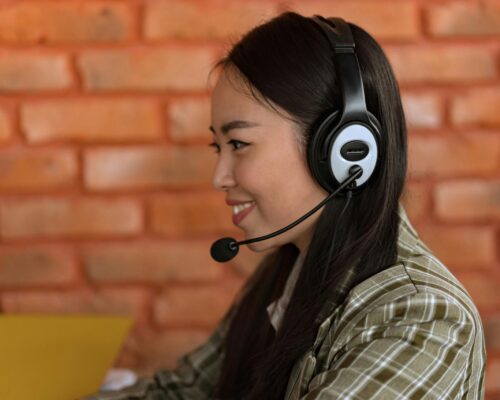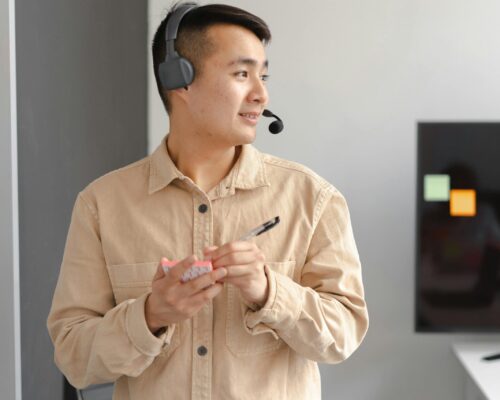Disrupting the travel and hospitality industry: How intelligent automation builds trust and boosts customer engagement

45% of customers complain about not being engaged or inspired by providers, while 72% desire relevant offers. – Salesforce
During the last decade, technology has revolutionised travel. Travellers today expect not only a higher quality of service, but a seamless customer experience – and that experience begins when a customer first contacts your brand. That’s why it’s crucial to build a great customer relationship from the start, maintaining personalised engagement and ultimately ensuring customer loyalty.
Changing expectations: the customer as the travel agent
With the travel industry recovering from the restrictions imposed by the global pandemic, customers are now showing a strong preference for planning their own trips rather than relying on travel agencies. A recent survey in the US indicated that 48% of travellers chose to book directly online with a brand, while 37% preferred to use online services such as Expedia or Travelocity. Only 7% reported planning to use a travel agency.
According to Salesforce, ‘Today’s customers expect a high-quality end-to-end experience, from the moment they start researching their trip until they arrive back at their door.’
This growing trend for customers to act as their own travel agents, searching online for the best deals on flights and accommodation, also means their expectations are becoming more sophisticated and nuanced. Customers aren’t just looking for good value, but for an outstanding experience. The tourism industry is notoriously competitive – and in the age of social media, online reviews can make or break a brand.
Staying ahead of the competition: how intelligent automation can help
The application of intelligent automation in the travel industry is already well under way, and is predicted to increase. A new ‘travel marketplace’ is emerging in response to customer expectations, with companies augmenting their offerings through collaboration with select partners in order to deliver on customer demands.
Intelligent automation can generate value for the travel industry in several ways. Robotic process automation (RPA) bots, such as those offered by our partners at Laiye, can be deployed to collect and aggregate data from multiple sources, enabling real-time access to competitors’ strategies and pricing changes, as well as to pull data from other systems or apps into the CRM system.
RPA automation improves service quality and timeliness by being available 24/7, reducing errors and improving compliance. – Laiye
Other potential uses of RPA bots include connecting to multiple booking systems, thus streamlining the reservation process and reducing manual input – a benefit for both the end user and the customer service team. In addition, they can pull data from multiple systems to make personalised recommendations for accommodation, travel and local attractions.
It’s good to talk: why guests love chatbots
While RPA bots are great for automating backroom tasks, conversational bots are at the forefront of customer interactions. Although engagement with customer service chatbots has often been fragmented, the new generation of AI-powered ‘intelligent’ chatbots is fast winning customers’ hearts – particularly in the travel industry.
‘The chatbot market has seen increased interest and rapid adoption over the last five years. During that time, the products and platforms enabling the building of chatbots have been extremely diverse and have evolved considerably.’ – Gartner 2022 Magic Quadrant™ for Enterprise Conversational AI Platforms
Hotels and airlines are increasingly adopting sophisticated chatbots to engage with guests at every step of the customer journey – with overwhelmingly positive results. US airline WestJet reported a 24% increase in customer satisfaction thanks to its AI assistant. Powered by Netomi, a chatbot solution from our partners at Zendesk, it has fully resolved 74% of customer service tickets without human intervention.
37% of users actually prefer to deal with a chatbot when arranging travel plans. – Travel Daily News
London-based Edwardian Hotels group created an entirely self-service guest experience using their chatbot, Edward – and proved so popular that room service sales increased by up to 50%. Meanwhile, WYNN Las Vegas took the opportunity to add Alexa Echo devices – already familiar to many travellers – to over 4,000 rooms. This novel ‘voice concierge’ was an instant hit with guests, resulting in over 83.7% customer satisfaction.
We at redk have over 15 years’ experience in digital transformation, working with our expert partners to advise on and implement the solution that’s right for your business. Get in touch now to discuss how we can help you harness the power of intelligent automation to streamline your processes and deliver a world-class customer experience.









